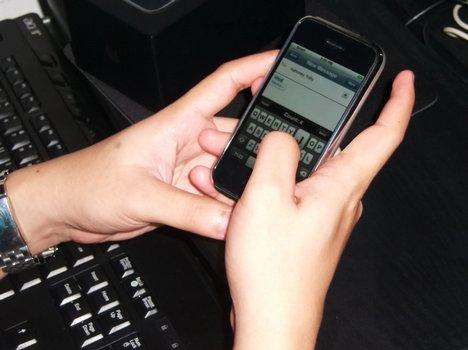
One of parents biggest fears when it comes to children, yes children, having cell phones is their child having the unrestricted ability to send and receive explicit content on their phone. Steve Jobs and Apple have never been supporters of their products being portals for adult related content, sexting included. Yesterday, Apple was rewarded the patent for their 'anti-sexting' technology.
The technology lets an iPhone's administrator block the sending and receiving of text messages with questionable content, specifically blocked or banned words from that administrator. The technology doesn't stop with a simple content filter though, it can be set to filter based on a child's grade level, a specific language, and also to filter abbreviated words that other programs cannot pick up on. With control as such, CNN's John Sutter goes to say that this can be used as an educational tool as well. Say a child is taking a Spanish course in school and they're required to send a certain amount of text messages in Spanish. If they fail to meet their allotment, their texting privileges (in Englsih) could be revoked until they meet their Spanish texting quota. It could also require grammatical errors and unnecessary abbreviations be fixed before a message can be sent (bye bye LOL's and WTF's). The obvious downside to the patent is there is no way to block the sending and receiving of explicit images, which is generally the largest problem with sexting to begin with.
Will this technology stop sexting? No. People are too clever and will find ways around anything if they want something bad enough, but it will definitely put a damper on little fifth-grader Johnny's secret texting conversation with Susie. This technology has yet to be put to use in prime time, but since the patent has finally been awarded, Apple may be convincing some parents to get their children iPhones just so they can better restrict their children's usage. To view the fill patent document, click here.
Via CNN (Image via World News Network)